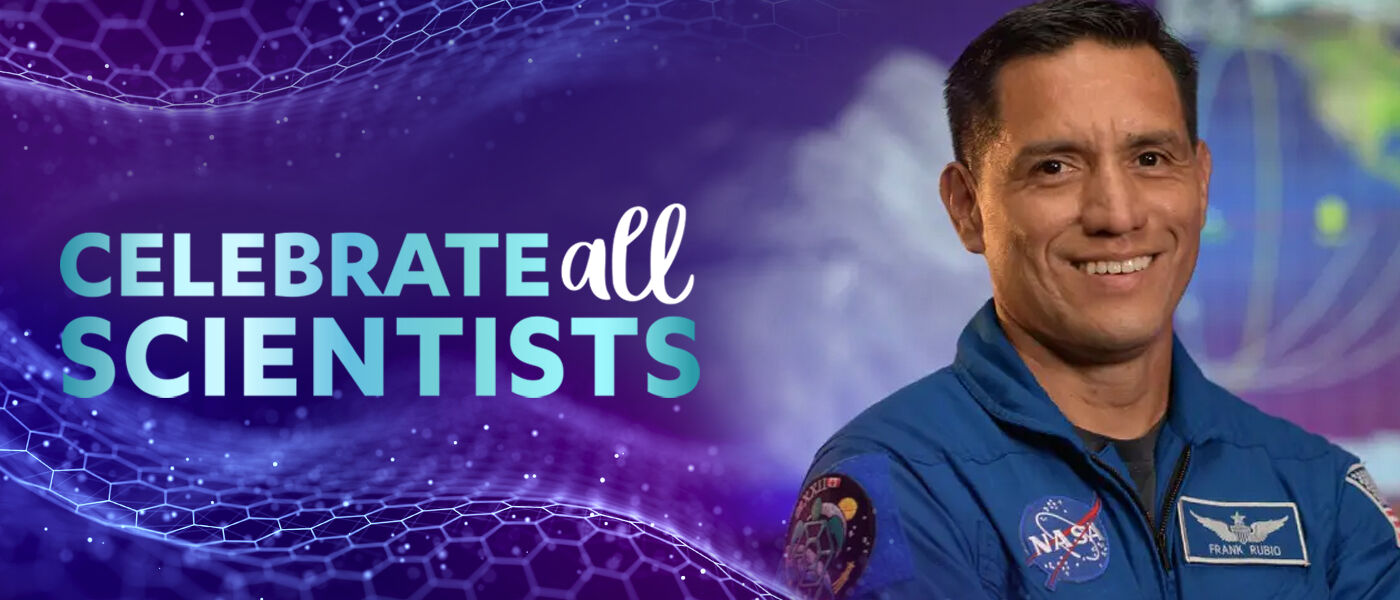Celebrate All Scientists: Dr. Frank Rubio

Sept. 15 - Oct. 15 is Hispanic Heritage Month and LSC is celebrating Dr. Frank Rubio, the first astronaut of Salvadoran origin to go to space. He now holds the record for the longest US spaceflight!
On Sept. 21, 2022, Dr. Frank Rubio launched aboard the Soyuz MS-22 to begin his research on the International Space Station, and only just returned on Sept. 27, 2023. He spent 371 consecutive days in space, beating the previous record of 355 consecutive days.
Dr. Rubio’s record-breaking spaceflight provides data on how the human body can endure and adapt for longer spaceflight—essential data as NASA sets to return to the moon and a future mission to Mars. “I think it’s really important that we learn just how the human body learns to adapt and how we can optimize that process so that we can improve our performance as we explore further and further out from Earth,” says Rubio.
Rubio attended the United States Military Academy at West Point, New York, earning a bachelor’s degree in international relations. After his commissioning as a second lieutenant in the US Army, Rubio became a UH-60 Blackhawk pilot. He has accumulated over 1,100 hours of flying time, including 600 combat hours during operations in Bosnia, Iraq, and Afghanistan.
Rubio earned a doctorate of medicine from the Uniformed Services University of the Health Sciences in Bethesda, Maryland in 2010. He has served as a clinic supervisor, an executive medicine provider, and a flight surgeon at Redstone Arsenal, Alabama. He was a battalion surgeon for the 3rd Battalion of the 10th Special Forces Group (Airborne) at Fort Carson, Colorado when his career veered into new territory.
In June 2017, Dr. Rubio was selected to join NASA’s Astronaut Candidate Class. He trained as a flight engineer and member of the Expedition 68 crew, which conducts experiments on the International Space Station, focusing on biology, Earth science, physical sciences, and technology development. Specific experiments include studying cardiovascular health in microgravity, utilizing bio-3D printing to print out knee cartilage tissue samples, and growing red dwarf tomatoes to examine their survival in microgravity.
Dr. Rubio’s contributions extend beyond his research aboard the space station and his record-breaking mission. He and his crew made it a priority to talk to school kids. “I just love the fact that we can enjoy the kids’ curiosity and hopefully inspire them to do great things later on in the future,” he says. Today, Latinos are underrepresented in STEM careers and make up only 5.7% of NASA’s workforce. Dr. Rubio’s stellar, record-breaking achievements are sure to inspire others to take on STEM careers.
This post was written by Alejandro Melendez, Manager of STEM Innovation at LSC. He studied biology in college. His favorite exhibition at Liberty Science Center is Microbes Rule!
